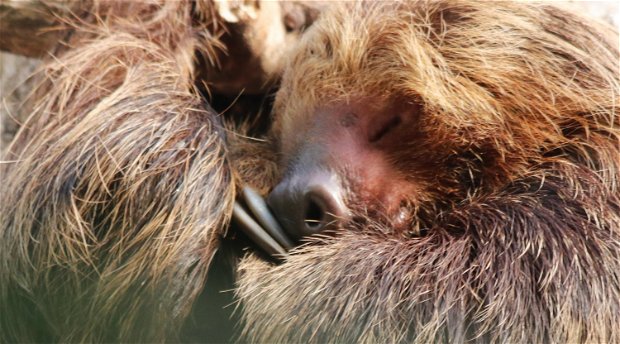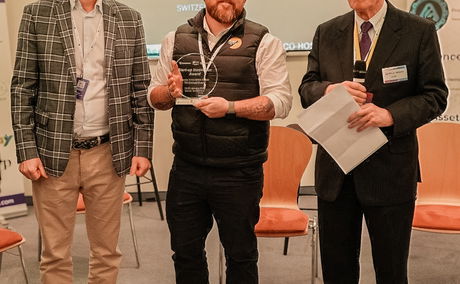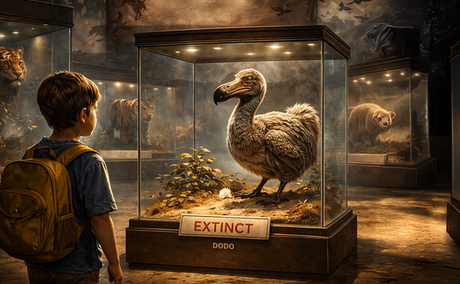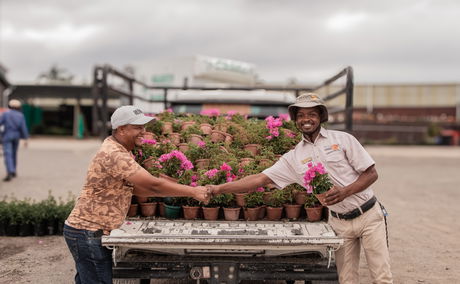For a conservation organisation based in Oudtshoorn, moments like this do not come often. And when they do, they are worth pausing for. This year, a South African conservation technology project founded by our CEO, Douglas Eriksen, was recognised on the global stage at the World Economic Forum in Davos. Project ZOA, or Zoological Open Architecture, was awarded the Startup Innovation Award for Top AI Sustainability Project during Davos Innovation Week 2026.
WORLD RAINFOREST DAY

With abundant rainfall all year round, rainforests host some of the most diverse and rich flora and fauna in the world. Despite covering a mere 6% of the Earth’s surface, rainforests are home to around 50% of the world’s terrestrial biodiversity.
On June 22 ‘World Rainforest Day’ is celebrated to highlight the importance of rainforests and to raise awareness on the need of its protection. This year’s theme is ‘The time is now’.
With rapid urbanisation and over-exploitation by humans, forest cover is depleting every year and it is vital that adequate measures and initiatives be taken to save the forests and the diverse life it harbours.
The Amazon rainforest, which is the world’s largest rainforest, supplies 20% of the oxygen that we breath. It also plays a crucial role in combating global warming by absorbing excess carbon dioxide and stabilising climate patterns. As human activities continue to threaten the sensitive ecosystem of the rainforests, conserving it becomes crucial for all life on the planet.
You can make smarter choices to protect the rainforests by being an advocate and assisting in the following ways:
- ELIMINATE DEFORESTATION FROM YOUR DIET. Many of the foods we eat are grown on deforested lands. For example, beef, soybean, and palm oil are main drivers of deforestation in the Amazon basin. Reduce your meat intake, and buy your meat from local farms that use sustainable practices. Check your food product labels for soy or palm oil ingredients and buy alternatives when possible. Choosing sustainably produced foods and products forces companies to change their practices.
- BUY RESPONSIBLY SOURCED PRODUCTS. Choosing products that are responsibly sourced or made from recycled materials can go a long way to curbing tropical deforestation. For example, mining for precious metals is a leading cause of deforestation and river pollution in the Amazon. Avoid products made from tropical hardwoods, like guitars and furniture. Use paper products made from recycled pulp.
- CHOOSE PRODUCTS THAT GIVE BACK. It’s best to buy less, but when you do buy, choose companies that contribute to environmental causes.
- SUPPORT INDIGENOUS COMMUNITIES. Buying artisanal products made by indigenous peoples is a unique and effective way to protect rainforests and sustainable livelihoods. Next time you travel, consider visiting communities through ecotourism. Ecotourism gives you an opportunity to learn about new cultures and directly supports indigenous peoples.
- REDUCE YOUR CARBON FOOTPRINT. To stem the climate crisis, action is needed by all levels of society to reduce carbon emissions and promote low-carbon development. While the task seems daunting, there are many things you as an individual can do to reduce your carbon footprint: Drive less, take public transportation/lift-clubs, turn off lights and electronics when not in use, and avoid unnecessary air travel. Whatever you cannot reduce, you can mitigate by supporting projects that offer carbon emissions reductions by keeping forests standing.
- SHARE RAINFOREST NEWS ON SOCIAL MEDIA. The more people know what is happening to rainforests and the indigenous communities who rely on them, the more likely they are to join and support the cause.
Further Reading
The Dodo once walked freely on the island of Mauritius. With no natural predators, it had no reason to fear humans. Within less than a century of human arrival, it was gone. Extinction is permanent. Once a species disappears, there is no recovery, no second chance, no future generations to protect. Every species on the Red List tells a story of pressure. Habitat loss. Human conflict. Climate stress. Decline that did not...
Some partnerships are built quietly and strengthened over time through consistency and shared purpose. Since 2018, Kraaibosch Nurseries in George has supported Cango Wildlife and the Cheetah Preservation Foundation as a benefactor. Their ongoing contributions help sustain the day to day work of conservation, from animal care and veterinary treatment to habitat management and long term programmes focused on threatened species, including cheetahs and other vulnerable wildlife in our care.















Share This Post